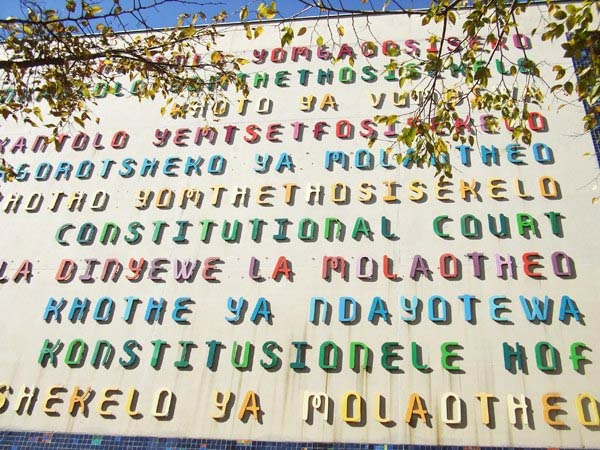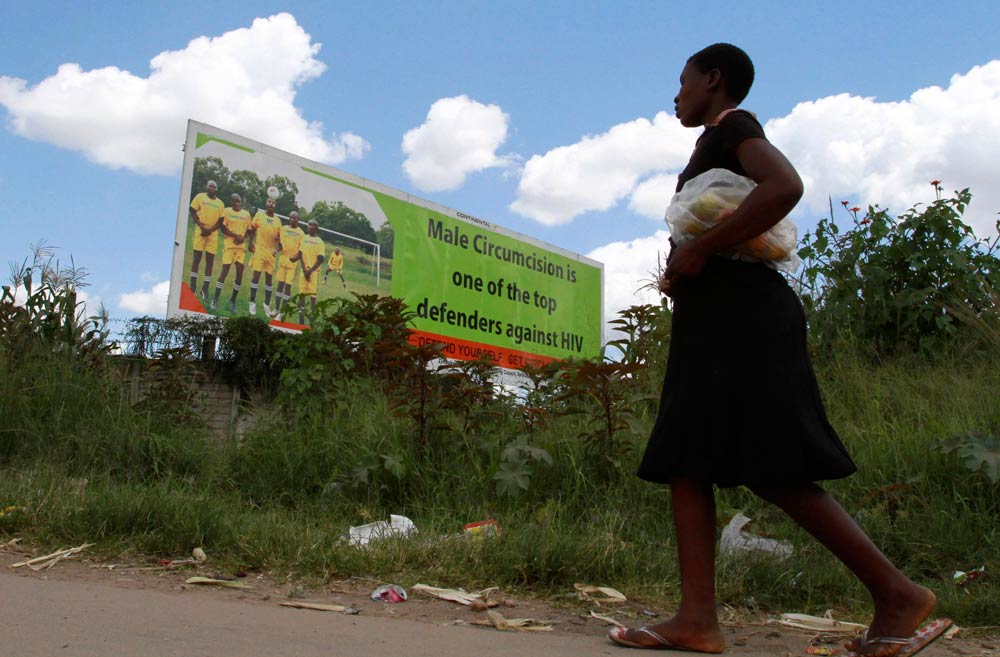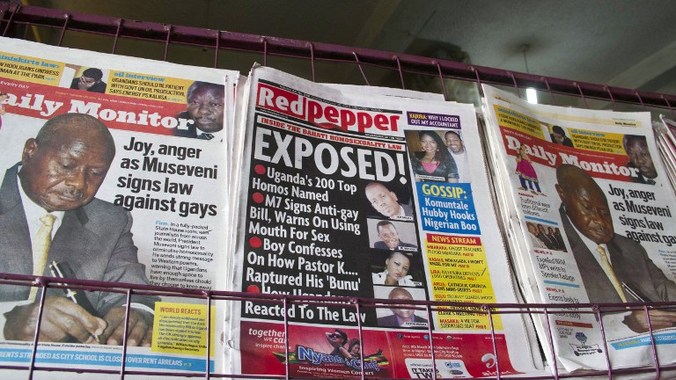
A few months ago I received an e-mail asking my advice about IsiXhosa equivalents of Gay, Lesbian, Bisexual, Transgender. IsiXhosa equivalents of these words do not exist, and I am not talking about derogatory terms. Growing up I had no language to talk about sexual identity; even the concept of having a “sexual identity” was a revelation in my late teens. Although visibly gay while growing up, there was no concrete articulation of my gayness as a sexual identity. I have often struggled with articulating sexual identity terms like gay, lesbian, bisexual, transgender and intersex (LGBTI) in my mother tongue.
I have had an ongoing conversation with my close friends about the issue of not having a “language” to talk about LGBTI issues. The language we use to talk about LGBTI issues and the terms we use to classify sexual identity are English language words. When people use the terms lesbian, gay, bisexual, transgender and intersex (LGBTI) in the vernacular people just add an “i” or “u” in front of the English word. So gay is then iGay (a gay) or uGay (he is gay), or iLesbian (a lesbian) or uyiLesbian (she is a lesbian). The same is done with all the other letters in L-G-B-T-I.
Now, although there are no specific terms, all of the terms in the L-G-B-T-I acronym can be described in the vernacular. Which is something people do when they talk about LGBTI people – they describe what gay people “do”. So if I am to answer the question – what is a gay man? – in the vernacular, I would describe a gay man in the vernacular as “umntu oyindoda othandana namanye amadoda” which translates to “someone who likes or falls in love with other men”, which means gay. There are multiple ways in the vernacular in which people say “gay” by describing what the term means – or what the person who is gay “does”. This is more or less the same process or application to the other letters in the L-G-B-T-I acronym.
Homophobes People have often raised the issue that because there are no equivalent specific terms in indigenous languages for L-G-B-T-I terms, homosexuality must be a Western import. This is a complicated point and needs to be addressed carefully. While it is true that the terms gay, lesbian, bisexual, transgender, transgender are all from the English language, what these terms name and describe is a phenomena that takes place in many cultures around the world. So although there are no equivalent words in the vernacular for gay, lesbian, or transgender, that doesn’t mean that there are no gay, lesbian, or transgender individuals amongst Xhosa people. So saying that because we don’t have a specific word for “transgender” in the vernacular therefore transgender people do not exist is lazy logic that won’t move us forward in making sense of the world.
Equally important is keeping in mind that the words gay, lesbian, transgender, and bisexual are also “new” words in the English language. The word “gay” and the word “lesbian” only become a reference for homosexuality in the late 19th century and increasingly in the 20th century. These words are less than 200 years old. The word “transgender” is even more “new” as a word because it comes to life in late 20thcentury and increasingly becoming part of our daily vocabulary.
New words are introduced into a language as new human phenomenon is discovered. New words are introduced as cultures find ways to explain people’s behaviours. Life is constantly evolving. The problem with IsiXhosa and other indigenous languages is that there are not enough people who are writing and producing knowledge in the vernacular, which is one of the ways new words are coined. The irony is not lost on me that I am writing this piece in English discussing IsiXhosa language issues. It pains me to admit that as awesome as my Xhosa is – I can read, write, and speak – it’s not as good as my English. It takes me twice as much time (if not more) to write a Xhosa piece than it does an English piece. Glancing over at my bookshelf I can’t spot a single Xhosa book. I used to read more Xhosa books when I was younger, but that changed as I grew older and went to mixed school and was required to read English books.
Xhosalisation
The language issue is a national issue, or at least it should be treated as such. IsiXhosa like all other indigenous languages of South Africa is not evolving by additional words being added in the language. Instead we see what my friends and I call the Xhosalisation of English words (which is a phenomenon that needs dissecting). Xhosalisation takes place in different ways, one of the ways it happens is the placing of the prefix “i” or “u” on English words. There is also the creation of “new” words by amalgamating English words with IsiXhosa words like the word “Xhosalisation”. Xhosalisation of English is useful for immediate everyday conversation but I wonder about its sustainability.
It is impossible to talk about language in this country without talking about the effects of colonisation and apartheid on indigenous languages. These systems of oppression have negatively affected the organic development of indigenous languages in epic proportions. Unlike English and Afrikaans, there are no structures in this country to ensure that indigenous languages continue to evolve. Universities like Stellenbosch are the bastion of the Afrikaans language and ensure that the language is moving with the times. There are no equivalent indigenous language institutions.
The post-1994 government has also failed to prioritise education and indigenous languages continue to be neglected. I think we need to think of ways in which we can articulate the struggles with gender inequality, sexual identity, and the changing culture in this country in indigenous languages. We need to be able to articulate the complexity of human sexuality in indigenous languages and maybe this will lead us in a direction where people gain a better understanding of sexual diversity.
It is a big problem that no academic work takes place in indigenous languages, as this is where ideas and new ways of being are articulated. This is not to say that people in the streets are not contributing towards the evolution of language, but it is knowledge producing centres that coin terms for human phenomenon and in the process helps us understand that human phenomenon. A few years ago, for the first time, a PhD thesis was written and submitted in IsiXhosa at the Nelson Mandela Metropolitan University. The sad reality is that even if you wanted to write a sociological PhD thesis in IsiXhosa you will struggle to find supervisors who would be able to read it. Not to mention the struggle you would encounter with trying to explain “deconstruction”, “queer theory” or “intersectional analysis.”
Universities and indigenous languages
There are ways in which we could try and improve the language situation in this country but that demands political will and that is sorely lacking. Universities in this country are in a good position to create language/cultural centres for indigenous languages. This could start a project of taking indigenous languages seriously and slowly introduce knowledge production in indigenous languages. Universities could collaborate with people who speak indigenous languages to learn more about the languages and the cultures behind them. At times it seems to me that the nine indigenous languages of the 11 official languages in this country are only decorative. Imagine if all nine of the indigenous languages had a language institute.
Also as people who speak indigenous languages, we should really seek ways in which we maintain indigenous languages in our everyday lives. Imagine a South Africa with IsiXhosa book clubs and IsiXhosa reading rooms at universities in the Western and Eastern Cape. Imagine a South Africa where students can study sociology in the vernacular. Having IsiXhosa centres could also serve as great instruments in diffusing the alienating white supremacist culture of former whites only universities in this country because black people will then feel part of institutions and not just needing to adapt to a white world. What we need is a vision of the kind of South Africa we want to live in and work towards that vision. Creating language institutes will probably not be easy, but creating a healthy South Africa that is content with itself requires hard word and an ongoing conversation about our difficult past and where we want to go. We also need to make peace with the fact that the great South Africa we want to create will be enjoyed by future generations. Just like we are enjoying a democratic South Africa that was created in part by many people who died in the process of creating it and never had a chance to experience it.
Lwando Scott is a PhD candidate in sociology at the University of Cape Town. He blogs at http://queerconsciousness.com. Connect with him on Twitter: @lwandoscott




